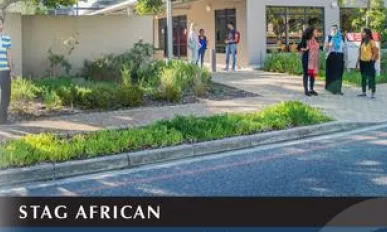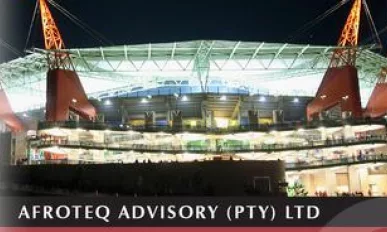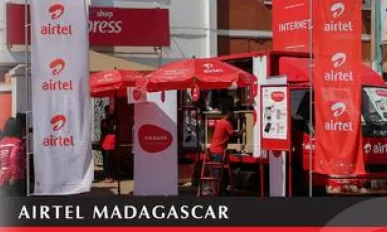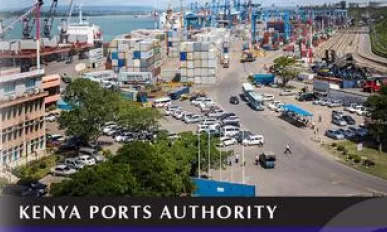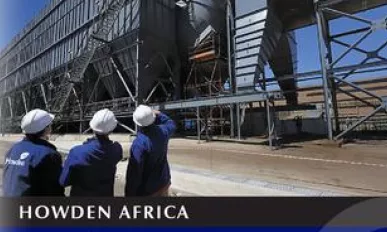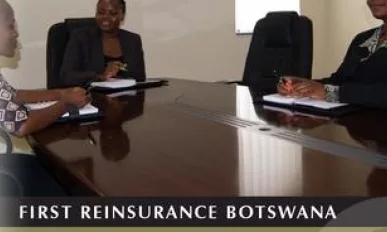Issue 30
Airtel Niger : Innovation without Borders
It should be expected that a business the size of Airtel Niger would keep ahead of the industry curve and innovate across its core services.
Laxmanbhai Construction Ltd : Excellence Across Generations
For more than 60 years, Laxmanbhai Construction Ltd has diversified its offering and its customer demographic to fulfil its initial dream of “creating an industry-leading firm dedicated to making the world a better place.”
Stefanutti Stocks (Pty) Ltd : Bridging your Expectations
With the expertise and capacity to deliver a range of construction projects of any scale the Stefanutti Stocks Group is a frontrunner.
Athena Properties : Africa’s Lifestyle Developer of Choice
The East African real estate market is currently thriving, with the likes of leading property developer and urban management services firm, Athena Properties at the forefront of this change.
STAG AFRICAN : The Green Light for International Expansion
STAG AFRICAN is on its way to achieving its goal of being the most innovative green Company on the continent, taking the market by storm.
Afroteq Advisory (Pty) Ltd : Informing the Right Business Choices
Afroteq Advisory (Afroteq) has grown a professional consulting and facilities management (FM) environment, developing their industry expertise to bring informed decision making to South African businesses.
Razorbill Holdings (Pty) Ltd : End-to-End Building Innovation
Razorbill Holdings has grown into a multi-faceted building solution Company, providing end-to-end building solutions that focus on bringing innovative green building techniques to South Africa.
Morris Material Handling : Africa’s Lifting Legend
Morris Material Handling has spent more than 60 years developing a reputation and brand loyalty within Africa, leveraging more than a century’s worth of expertise to become a living legend in an ever-diversifying range of domains.
Airtel Madagascar : Customers for Life
Airtel Madagascar has been one of the key beneficiaries of the Airtel Group’s 2014 continent-wide investment programme.
Internet Solutions Ghana : A Ghanaian Telco with a Global Flavour
Internet Solutions Ghana has made significant strides since formation in 2008, with a concerted focus on bringing connectivity, communications and cloud solutions to the local market.
Cable & Wireless Seychelles : Island Quad-Play Revolution
Commencing operations in the country 122 years ago, Cable & Wireless Seychelles (CWS) is intrinsic to the very history of the country having connected Seychelles to the outside world since 1893.
Kenya Ports Authority : The Region’s Trading Hub
Kenya Ports Authority (KPA) has been responsible for the Port of Mombasa since 1978, overseeing the country’s transformation into the ‘hub of Africa’ that it is often considered as today.
Vodacom Congo : Connecting People and Changing Lives
Vodacom Congo has gradually and increasingly realised its promise of saturating the entire country with its market-leading telecoms services.
Dunlop Industrial Products (Pty) Ltd : Pursuing Operational Excellence
Following a series of mergers and acquisitions since the 1990s, Dunlop Industrial Products (Dunlop) has made concerted efforts to strengthen and expand its product portfolio and manufacturing operations in order to optimise future growth prospects.
Howden Africa : World-Class Manufacturing in Africa
Howden Africa has played a significant role in the engineering developments across the African continent over the past 65-plus years.
Sigma Supplies : Ruling the Roost
Sigma Supplies has ascended from humble beginnings to become one of the country’s largest fully integrated poultry companies, diversifying and expanding in line with the country’s most pressing industry trends.
Sakata Seed Southern Africa : Quality, Reliability and Service
Sakata Seed Southern Africa has grown tremendously over the past few years in making the horticultural seed market its own in the region in recent years, as it leverages more than 100 years of global experience.
Open Food : Keeping its Options Open
OPEN Food is exploring new horizons, new sectors and new territories as it stays true to an entrepreneurial ethos which continues to keep the catering specialist ahead of the industry curve and market competition year after year.
Danakali Ltd : Supporting Future Growth Markets
Danakali, in conjunction with its joint venture partner, the Eritrean National Mining Company, is laying the foundations for what promises to be one of country’s most significant mining operations to date.
First Reinsurance Botswana : First-Class Reinsurers
As first-movers in Botswana, First Reinsurance Botswana is working hard to strengthen the market’s understanding of reinsurance products and the benefits they bring to insurers.
Zimbabwe Insurance Brokers : Flexible Risk Solutions
Zimbabwe Insurance Brokers is looking forward to a series of technological advancements to usher in the latest phase of a 20-year evolution to the top of the country’s financial domain.







